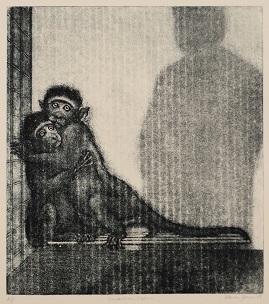Everything You Should Know About Animal Experiments
1 Every thirty seconds vivisectors around the world kill another thousand animals. They use cats, dogs, puppies, kittens, horses, sheep, rats, mice, guinea pigs, rabbits, monkeys, baboons and any other creature you can think of.
2 While waiting to be used in laboratory experiments, animals are kept in solitary confinement in small cages. Alone and frightened they can hear the screams of the other animals being used.
3 Some of the animals used in laboratory experiments are pets which have been kidnapped, taken off the streets and sold to the vivisectors.
4 Animals used in experiments are blinded, burned, shot, injected and dissected. They have their eyes sewn up or their limbs broken. Chemicals are injected into their brains and their screams of anguish are coldly recorded.
5 Three quarters of the experiments performed by vivisectors are done without any anaesthetic.
6 Most vivisectors have no medical or veterinary training.
7 Scientists claim that animals are not sentient creatures and are incapable of suffering mental or physical pain.
8 All animals respond differently to threats of any kind depending on their circumstances (diet, cage size, etc.). None of these factors is allowed for by vivisectors. By locking an animal up in a cage, experimenters have already invalidated their experiment because by altering the animal's surroundings, the experimenter alters the animal's susceptibility, its habits, its instincts and its capacity to heal itself. Since these variations are not controlled (cages and surroundings differ) experiments performed on animals kept in cages are of no scientific value.
9 Many of the diseases which kill or cripple human beings do not affect any other members of the animal kingdom. It is, therefore, impossible to use different species to test drug therapies for these illnesses.
10 Doctors wouldn't test a drug intended for old people on children (or the other way round). So why test drugs intended for pregnant women on rats? No one would test a drug for premenstrual problems on small boys and yet that would make far more sense than testing such a drug on male rats.
11 Drug tests done on animals can produce dangerously unreliable and misleading information. Thalidomide safely passed tests on animals. Penicillin and aspirin both kill cats. When Alexander Fleming discovered penicillin growing on a culture dish in 1928, he tested the drug on rabbits and discarded it when it seemed useless. Later the drug was tested on a cat and a human patient at the same time. The cat died and the human being lived. If doctors had relied upon animal experiments to decide whether or not penicillin was of any value, the drug would have been discarded long ago. Penicillin even kills guinea pigs - the classic test animal for many drugs. Aspirin can be toxic to rats, mice, dogs, monkeys and guinea pigs as well as cats. Morphine sedates human beings but excites cats, goats and horses. Digitalis, one of the best established and most effective drugs for the treatment of heart disease, is so toxic to animals that if we had relied on animal tests it would have never been cleared for use by humans.
12 Vivisectors admit that most animal experiments are unreliable and produce results which are not relevant to human patients. But they don't know which experiments are unreliable. Logically, that means that all animal experiments are useless. If you don't know which experiments you can rely on, you can't rely on any of them.
13 The very unreliability and unpredictably of animal experiments is what makes them commercially valuable. Drug companies test on animals so that they can say that they have tested their drugs before marketing them. If the tests show that the drugs do not cause serious disorders when given to animals the companies say: `There you are! We have tested our drug - and have proved it to be safe!' If, on the other hand, tests show that a drug does cause serious problems when given to animals the companies say: `The animal experiments are, of course, unreliable and cannot be used to predict what will happen when the drug is given to humans. We have, however, tested our drug.' Tests which show that a drug causes cancer or some other serious disease when given to animals are ignored on the grounds that animals are different to people. However, tests which show that a new drug doesn't kill animals are used as evidence that the drug is safe for human consumption. If you try a drug on enough different animals you can usually end up with at least one set of results which suggest that a drug is safe. Scores of drugs which cause cancer or other serious health problems in animals are widely prescribed for human patients. (See vernoncoleman.com for the names of 50).
14 Four out of ten patients who take a prescribed drug which has been tested for safety on animals can expect to suffer severe or noticeable side effects.
15 Surveys show that most practising doctors are opposed to vivisection on scientific grounds.
Taken from The Wisdom of Animals by Donna Antoinette Coleman and Vernon Coleman. Available as a paperback and an eBook.
____________________________________________________________________________________________
Source: vernoncoleman.org. IMG: Elana Goren. AWIP: http://www.a-w-i-p.com/index.php/aJ63

























